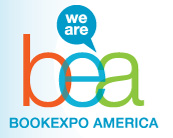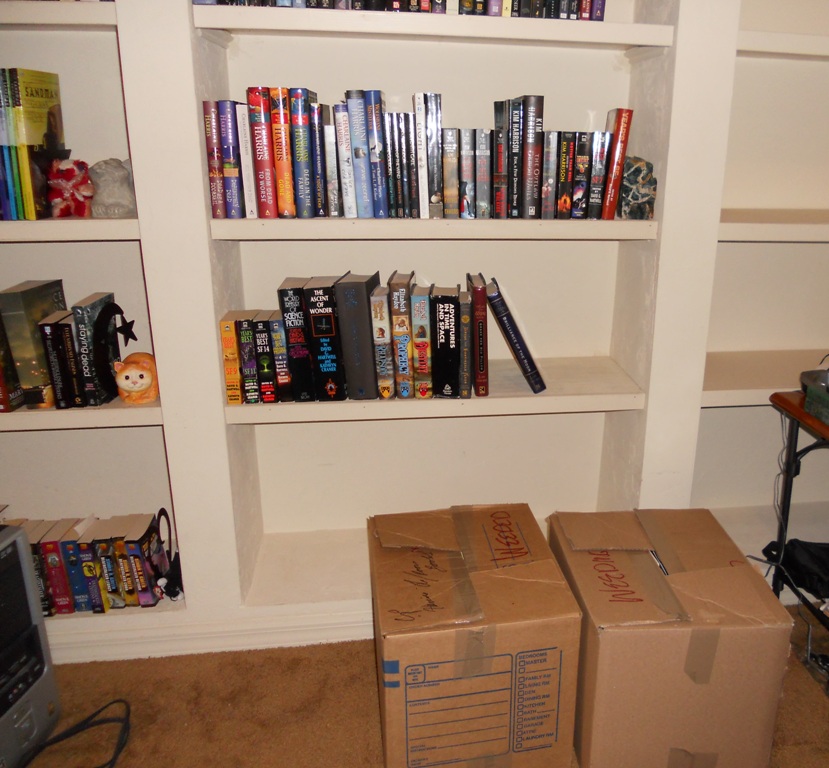 In other news this week, Book Expo America (BEA) has been happening in New York City. And the hot topic for the week has been–surprise–ebooks! That’s not to say that the usual business of the show, the distribution of galleys for upcoming books, particularly lit fic, did not occur, but the biggest buzz seems to have been around the topics of ebooks and ebook selling, and how to replicate the experience of bookstore handselling in an increasingly ereader- and online-driven world.
In other news this week, Book Expo America (BEA) has been happening in New York City. And the hot topic for the week has been–surprise–ebooks! That’s not to say that the usual business of the show, the distribution of galleys for upcoming books, particularly lit fic, did not occur, but the biggest buzz seems to have been around the topics of ebooks and ebook selling, and how to replicate the experience of bookstore handselling in an increasingly ereader- and online-driven world.
Books, whether print books or ebooks, are sold in only a few ways. You have read the author previously, and you like their work, so you buy the next one. (Baen books exploits this by giving away the first couple of ebooks in their authors’ series for free in the Baen Free Library.) The book appears on a bestseller list, so you know that other people are reading and recommending it, so it might be worth reading. A friend or colleague recommends it, otherwise known as “word-of-mouth”. You go to a bookstore and someone there recommends it, known as “handselling”. Librarians also hand0-recommend books. Last, you go to a “bricks and mortar” bookstore and browse the shelves where you see the book, find the cover interesting, read the cover blurb, and decide to take a chance and buy the book.
According to the reports from BEA, that last one, the serendipitous discovery, is also the way that most people decide to purchase ebooks as well. My favorite comment was a quote from David Steinberger, the CEO of Perseus. He said that, “What e-book sellers have now, is a system that’s ‘good for hunters, but not as good for gatherers’: it’s easy to find a book if you know what you’re looking for, but the virtual world offers nothing for the casual browser comparable to the bricks-and-mortar experience.”
However, for the ebook producers, the revolution is a positive one. Sales are up. In fact, the mid-list sales are particularly up. Those hunters that Steinberger referred to are finding more of the stuff they are hunting for, because all those predictions about the long tail are not just working, but the long tail is even longer than predicted. And when hunters have the entire world to hunt in, niche publications turn out to have an even better chance of finding their audiences.
But that gets back to the question, “how do they know?” How does a new author get buzz? Amazon reported earlier this month, and the New York Times article about BEA echoed it today, that owners of ereaders buy more books. But how do they, how do we, decide which books to buy?
In the Publishers Weekly article about BEA, Tom Turvey, Google’s own director of strategic partnerships, asked why “all book recommendation engines suck before answering his own question: “there isn’t an algorithm that can compete with a competent, real-life bookseller.” Something that could easily be added here is a competent, real-life librarian.
There are a lot of long-term issues here all the way around. Independent bookstores do a terrific job of handselling, but their ability to link into ebook selling is lagging behind. They can partner with Google Books (Powell’s Bookstore does) but Google doesn’t allow the independents to advertise, at least not yet. However, discovery on the Google bookstore is less than optimal, as I have discovered myself. If I know what I want, it works fine. If I’m browsing from my iPad, I use Barnes and Noble–their bricks and mortar experience helps a lot.
Part of the BEA story was that children’s books have not seriously moved toward ebooks as yet. Picture books just don’t lend themselves to the format, and if the goal is to read with a child, cuddling up with the kid on your lap to read from an ereader while looking at the pictures together just doesn’t work yet.
Another piece of the BEA story concerned regional availability. The publishers are still hung up on the idea that some books can only be sold in certain parts of the world, even when that world is online. There was some understanding that this concept’s days are numbered. I sincerely hope so. In the bad old days, meaning pre-amazon.co.uk, Terry Pratchett’s books used to come out 6 months earlier in the UK than they did in the US. I don’t know how much revenue his US publisher lost to the UK the first couple of years after it became relatively easy for fans to simply order the new book from amazon.co.uk if you were willing to have it shipped. But the 6 month delay nonsense stopped pretty quickly. If I am willing to pay for an ebook, and an ebook exists in English, and is available for sale in Canada or Australia or the UK, but is not available for sale in the US, my first question is going to be why can’t I buy it here? My second question is going to be how can I solve this problem?
One last interesting possibility. Google threw out a teaser that they might rent ebooks a la Netflix. Is that the good news, or the bad news?





